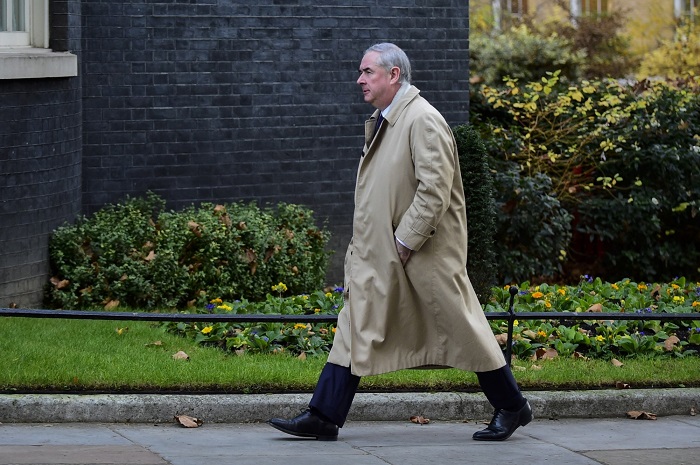London, UK’s Attorney General Geoffrey Cox on Tuesday said the government’s last-ditch legal changes to the Brexit agreement reduced but did not rule out the risk that the country could be indefinitely bound to the Irish backstop clause.
Cox’s comments came as Prime Minister Theresa May was set to put her Brexit agreement to a parliamentary vote later in the day.
Cox, whose job is to present the House of Commons with independent legal advice on the UK’s withdrawal from the EU before the so-called meaningful vote on May’s deal, said in a statement that his opinion had not changed since he first brought it to the lower chamber of lawmaking last year.
In his advice, he said that there remained no “internationally lawful means” of leaving the Irish backstop without the EU’s agreement, the BBC reported.
But Cox said the extra assurances won by May “reduce the risk that the UK could be indefinitely and involuntarily detained” in the backstop if talks on the two sides future relationship broke down due to “bad faith” by the EU.
“However, the legal risk remains unchanged that if through no such demonstrable failure of either party, but simply because of intractable differences, that situation does arise, the UK would have… no internationally lawful means of exiting the Protocol’s arrangements, save by agreement.”
Cox said he was “strongly of the view” that MPs should back the deal.
May made a last-minute dash to Strasbourg on Monday night to clinch the deal with the European Commission President Jean-Claude Juncker.
She said she had secured the necessary legally-binding tweaks to ensure the UK would not be indefinitely tied to the backstop protocol, adding the government would also set out a mechanism which would “ultimately” allow the UK to unliterary “dis-apply” the measure should it see fit.
May’s deputy, David Lidington, then announced to MPs that the UK had secured three changes to the agreement that May had put before the Commons last Monday.
These included a unilateral statement from the UK of the government’s interpretation of the backstop; a “joint interpretative instrument”, clarifying the fact that it is not intended to be permanent; and a joint political statement, signalling both sides’ intention that a new relationship will be in place by 2020, making the backstop unnecessary.
The backstop, which looks to safeguard the soft border on the island of Ireland if Brexit talks collapse, proved hugely unpopular with pro-Brexit MPs in May’s Conservative Party.
They said its potentially indefinite nature and the UK’s inability to withdraw from it unilaterally eroded the UK’s sovereignty and did not deliver a true withdrawal from the EU.
The Democratic Unionist Party, a right-wing outfit from Northern Ireland, also protested the backstop, saying it could keep the UK territory in Ireland bound to EU customs regulations to preserve the free-flowing border with the Republic of Ireland, an EU member state.










